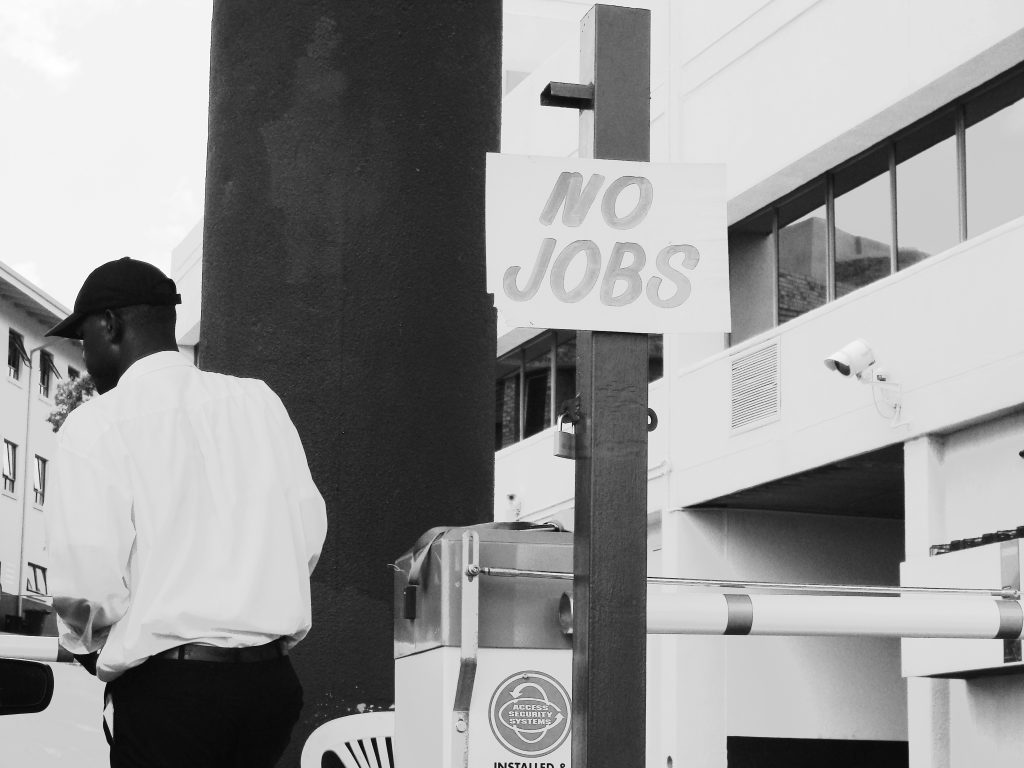In its latest meeting, the Federal Reserve announced a 0.25% decrease in interest rates, citing concerns over unemployment. While the move affects the economy as a whole, one group is feeling the pressure more acutely than any other: Gen Z graduates. For decades, college has been viewed as the final stepping stone to the professional world, a launchpad for careers and financial independence. Yet today, new graduates are entering a job market that looks drastically different from the one their parents faced.
Economic uncertainty, rapid technological shifts such as AI, and shrinking entry-level opportunities have combined to create a perfect storm. Many are realizing that the skills they spent years developing in college are no longer enough, and the first rung of the career ladder, the traditional entry-level role, is rapidly disappearing.
This article offers an analysis of the current crisis facing fresh graduates, and offers recommendations on how to pivot accordingly to be able to get more opportunities.

The Harsh Reality for Gen Z Graduates
For many Gen Z graduates, the job market is proving to be far harsher than expected. Entry-level hiring has slowed dramatically, while companies continue to fill senior positions at a steady pace. In fact, recent data shows that entry-level job postings are decreasing at three times the rate of senior-level openings. This trend signals a fundamental shift: the first step on the career ladder, once a guaranteed gateway for young professionals, is steadily disappearing.
The statistics paint a stark picture. In the United States, the graduate unemployment rate for 20–24-year-olds is now almost identical to the general unemployment rate for that age group, a mere 1% difference in 2024, down from 6% in 2010. Similar patterns can be observed abroad: in the UK, the number of employees in their twenties working in traditionally graduate-friendly industries such as finance and law has dropped by 10% from 2016 to 2024.
This reality is compounded by the aftermath of past economic crises. The 2008 financial crash reshaped hiring practices, and its effects continue to ripple through today’s market. Many industries that historically served as reliable entry points for new graduates are hiring less, pausing recruitment, or demanding experience that first-time job seekers simply do not have.
The result is a generation of graduates who are confronted with a sobering truth: college alone no longer guarantees a smooth transition into the workforce. They are entering a job market that is competitive, uncertain, and unrelentingly fast-paced.
Contributing Factors
Several forces are converging to make the job market particularly challenging for Gen Z graduates. Understanding these factors is crucial to grasping why traditional pathways into employment are no longer reliable.
1. Economic and Political Uncertainty
Global and domestic instability is causing companies to hit pause on hiring. Without clear foresight into the economy, firms are reluctant to invest in entry-level positions. The fear of recession, inflation, or unpredictable policy changes means that even highly qualified candidates may find fewer opportunities available.
2. Technological Shifts
One of the most significant challenges facing Gen Z graduates is the rapid pace of technological change. Advances in artificial intelligence, machine learning, automation, and digital platforms are transforming workplaces at an unprecedented rate. Jobs that once required human labor, data entry, basic analysis, customer service, and even some creative tasks, are increasingly automated, shrinking traditional entry-level opportunities.
At the same time, college curricula are struggling to keep pace. Many programs focus on older frameworks and theories, leaving students underprepared for emerging tools, platforms, and industry practices. For example, a computer science graduate may master Java or C++, only to find employers now demand cloud-based solutions, AI-driven analytics, or full-stack development skills. Even non-technical fields require digital literacy and tech adaptability, creating a broader gap between what graduates learn and what employers need.
Moreover, employers now seek candidates who can continuously learn, adapt, and apply technology effectively, rather than relying solely on static knowledge. This shift emphasizes that the ability to navigate technological change has become one of the most critical determinants of early career success.
3. Lingering Effects of Past Crises
The 2008 financial crisis reshaped hiring patterns across many industries, effects that still linger today. Sectors that historically absorbed large numbers of young professionals, such as finance and law, have not fully recovered graduate intake levels. In the UK, the number of employees in their twenties in these fields dropped by 10% from 2016 to 2024.
4. Shrinking Entry-Level Opportunities
As companies streamline operations and demand more experienced workers, the first rung of the career ladder is disappearing. Entry-level roles are being replaced by internships, contract work, or hybrid positions that require prior experience, creating a catch-22 for fresh graduates.
Together, these factors form a perfect storm, making it increasingly difficult for Gen Z to step into their first professional roles. Without adaptation or proactive planning, the gap between education and employment is only set to widen.
Skills Mismatch and the College Gap
Another critical reason Gen Z graduates struggle to secure jobs is the growing gap between college education and workplace demands. For decades, a degree was seen as a ticket to a stable career. Today, many graduates are finding that the skills they learned in classrooms and lecture halls no longer match what employers require.
One key issue is technical obsolescence. Courses in fields like business, engineering, or computer science often lag behind industry trends. By the time students graduate, the tools, platforms, and methods they studied may have evolved or been replaced. This leaves graduates theoretically knowledgeable but practically underprepared for the tasks they will face on day one.
Equally important are soft skills, which are increasingly becoming decisive factors in hiring. Communication, problem-solving, adaptability, teamwork, and emotional intelligence often matter as much, or more, than technical expertise. Yet many college programs focus primarily on technical competencies, leaving students without sufficient opportunities to develop these interpersonal abilities.
Another dimension of the skills mismatch is learning agility. In a fast-paced, ever-changing job market, employers value candidates who can quickly learn new technologies, adapt to shifting priorities, and apply knowledge in novel ways. Unfortunately, traditional education systems emphasize memorization and theoretical understanding over experiential learning and real-world problem-solving.
This mismatch creates a harsh reality: many graduates are discovering that completing college does not necessarily mean they are “job-ready.” The education system provides the foundation, but it is no longer sufficient on its own. To thrive, graduates must actively bridge the gap, by cultivating soft skills, embracing lifelong learning, and seeking practical experiences that complement their academic knowledge.
The Future Problem
The shrinking pipeline of entry-level roles doesn’t just affect today’s graduates, it has serious implications for the future workforce. Entry-level positions have traditionally served as the foundation for career progression, allowing young professionals to gain experience, develop leadership skills, and eventually move into senior roles. With fewer opportunities at the start, there is a growing concern about who will fill higher-level positions in the years to come.
This bottleneck threatens not only individual career trajectories but also organizational growth. Companies rely on a steady flow of talent to maintain innovation, succession planning, and operational continuity. Without fresh graduates entering the system, the pool of experienced candidates ready to assume leadership roles in the future will shrink, potentially creating talent shortages across industries.
Moreover, the uncertainty surrounding entry-level hiring can discourage new graduates from pursuing traditional career paths altogether. Many may delay their professional ambitions, pivot to less competitive or non-traditional roles, or even consider entrepreneurship out of necessity rather than choice. This shift could reshape entire industries, as the classic ladder of professional advancement becomes increasingly fragmented.
The challenges facing Gen Z are not temporary, they represent a structural shift in the labor market. Without proactive adaptation, both graduates and organizations risk long-term consequences. Early career struggles are no longer isolated events; they are symptoms of a deeper transformation in how talent enters and progresses within the workforce.
What Gen Z Graduates Can Do
While the job market may seem daunting, there are concrete steps Gen Z graduates can take to navigate these challenges and position themselves for success. The key is adaptability, continuous learning, and proactive career planning.
1. Develop Soft Skills
Employers increasingly value soft skills such as communication, teamwork, problem-solving, and adaptability. These abilities can set candidates apart when technical skills alone aren’t enough. Graduates should actively seek opportunities to build these skills, whether through volunteering, group projects, or extracurricular activities.
2. Embrace Lifelong Learning
The rapid pace of technological change makes continuous learning essential. Graduates should invest in upskilling and reskilling through online courses, certifications, workshops, or industry-specific programs. Learning how to learn, rather than relying solely on prior knowledge, becomes a critical advantage in a constantly evolving job market.
3. Gain Practical Experience
Internships, part-time roles, freelance projects, and volunteer work can bridge the gap between academic knowledge and professional requirements. Even short-term or unconventional experiences provide valuable skills and demonstrate initiative to potential employers.
4. Explore Non-Traditional Paths
With traditional entry-level positions shrinking, graduates may consider alternative career routes. Startups, remote work opportunities, gig economy roles, and entrepreneurial ventures can provide experience, skill development, and networking opportunities that traditional pathways no longer guarantee.
5. Network Strategically
Building professional relationships is essential. Networking with alumni, industry professionals, and mentors can open doors that applications alone may not. Attending industry events, participating in online communities, and seeking guidance from experienced professionals can provide insights and connections that accelerate career growth.
6. Focus on What You Can Do Today
The truth is nobody really knows how the upcoming few years are going to look like. Consequently, it’s not wise to have something like a 5 year plan or path in your head. Most of the jobs that will be needed in 5 years probably do not exist yet. So just focus on learning small skills everyday and eventually, the accumulation of your skills will eventually make you the best candidate for a role that will soon be needed.
By combining these strategies, Gen Z graduates can take control of their career trajectory. While the traditional ladder may be less predictable, those who adapt, learn continuously, and seek diverse experiences are more likely to succeed in an uncertain job market.
Conclusion
The challenges facing Gen Z graduates are undeniable: shrinking entry-level roles, rapid technological change, and a mismatch between college education and workplace demands. Yet these obstacles also present opportunities for growth and adaptation. By focusing on soft skills, embracing lifelong learning, gaining practical experience, exploring non-traditional paths, and building strong professional networks, graduates can take control of their careers.
The first rung of the ladder may be shifting, but with resilience, adaptability, and a proactive mindset, Gen Z can navigate the evolving job market and lay the foundation for long-term professional success.



